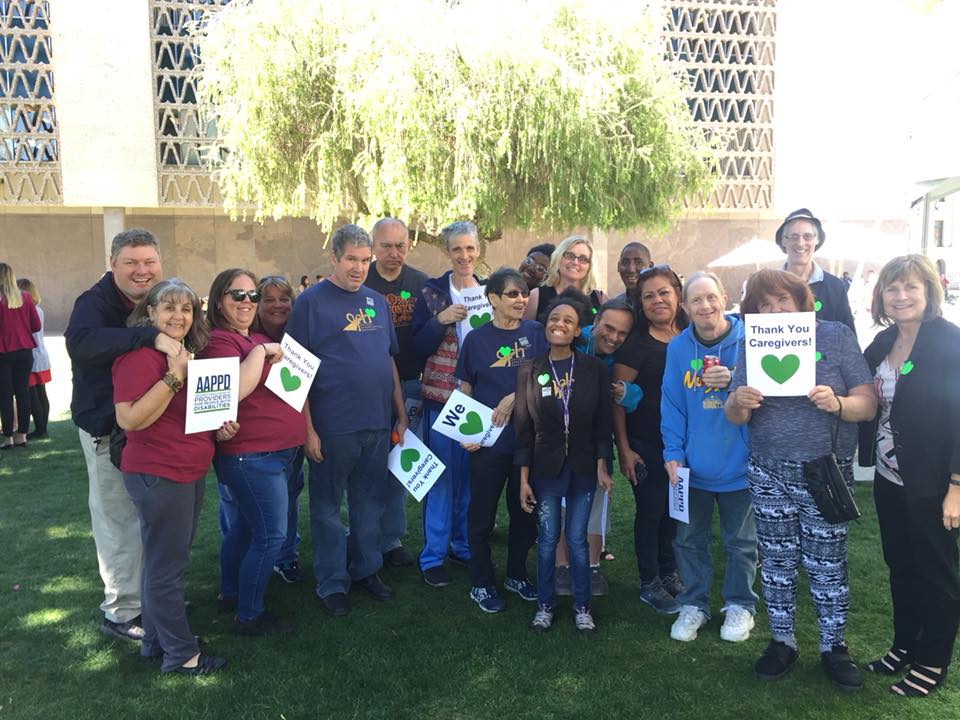[vc_row rt_row_background_width=”default” rt_row_style=”default-style” rt_row_borders=”” rt_row_paddings=”true” rt_bg_effect=”classic” rt_bg_image_repeat=”repeat” rt_bg_size=”cover” rt_bg_position=”right top” rt_bg_attachment=”scroll” rt_bg_video_format=”self-hosted”][vc_column rt_wrp_col_paddings=”false” rt_border_top=”” rt_border_bottom=”” rt_border_left=”” rt_border_right=”” rt_border_top_mobile=”” rt_border_bottom_mobile=”” rt_border_left_mobile=”” rt_border_right_mobile=”” rt_bg_image_repeat=”repeat” rt_bg_size=”auto auto” rt_bg_position=”right top” rt_bg_attachment=”scroll”][vc_column_text]When The Opportunity Tree was founded in 1962 it was a transition period for children with disabilities. Public school districts had begun to absorb developmentally disabled children into their classrooms. The Opportunity Tree found that most of the schools were meeting the needs for children, however, there was an increase for vocational and other programs for adults. Excerpt from our President’s 1966 report to the board, “There has been a marked increase in requirements for vocational evaluation and training of adults. Our program emphasis must shift to helping people fit themselves for the employment they can fulfill, becoming useful citizens and taxpayers.
” Fifty five years later The Opportunity Tree still believes in the same mission “to provide quality individualized services to people with physical or intellectual challenges in the least restrictive environment.”
Fifty five years later The Opportunity Tree still believes in the same mission “to provide quality individualized services to people with physical or intellectual challenges in the least restrictive environment.”
The Opportunity Tree believes an emphasis on comphrensive curriculum based programming, transition services for youth, and advocacy is the key to empowering individuals with disabilities. Below we have listed resources below to help you access political power and advocate for yourself, your loved one, family member or community. Please contact Gina Griffiths, The Opportunity Tree’s Director of Programs, to learn more about current local political issues and how they affect our community of individuals with disabilities.
1. Utilize Self Advocacy Resource Centers
Click here to learn about ABILITY360 self advocacy trainings! Also, get involved in the ABILITY360 community of advocates. Learn about the power of language and labels. Register for email updates from ABILITY360 on public policy concerning the community of disability advocates.
2. Register to vote
Go to ADOT Service Arizona to register to vote or update your information. Watch this video “Why Vote” by the Arizona Center for Disability Law Channel.
3. Know your Federal Representatives and Issues
Click here to find out who your Congressional representatives are. Click here to get alerts for subject areas or keywords to track important bills through Congress. Contact the White House directly.
4. Learn about local issues
- Register for weekly updates on bills related to developmental disability issues from the Arizona Developmental Disabilities Planning Council.
- Read the Arizona Revised Statutes (ARS) Title 36, Chapter 5.1 governing the Division of Developmental Disabilities. Then, read the rules that govern the DDD which clarify how the statues are implemented in more practical terms.
- Read about new state standards, legislator votes on key education bills or find out how to join a school board from the Arizona School Boards Association.
5. Participate in State and Local Government
- Click here to find out who your State representatives are and how to contact them. Make sure to sign up for the “Request to Speak” system to comment on bills from home or check the status of a bill. Visit the legislature and make your voice heard!
- On Tuesday, January 26, 2017 family members and providers testified in front of the House Appropriations Subcommittee on Health and Welfare in regards to funding issues faced by the community. To view video of the meeting and their testimony
6. Write an Op Ed or Letter to the Editor
Opinion Editorials and Letters to the Editor can be powerful tools of advocacy. Most papers now have online versions which only serves to amplify your message. Cultivating relationships with columnists is also a good strategy to prioritize your concerns in the media. Some popular local papers in the Phoenix Metro area are the Arizona Republic, Phoenix New Times
7. Know what resources are available
- Arizona Division of Developmental Disabilities
- Arizona Center for Disability Law
- Office for Civil Rights
- Office of Special Education and Rehabilitative Services
- Office of Special Education Programs
- Alternative Options to Guardianship Webinar
- Guardianship: A Last Resort Webinar
[/vc_column_text][/vc_column][/vc_row]
